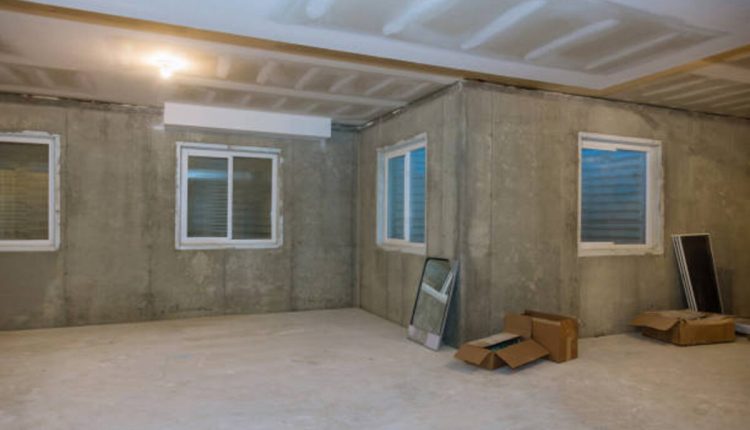Waterproofing basement floors is vitally important to prevent moisture damage to plywood, oriented strand board flooring, carpeting, and other materials installed directly over concrete basement slab floors. Moisture damage in a basement often necessitates costly and time-consuming repairs or rebuilding efforts that must be addressed as quickly and cost-effectively as possible. Discover the best info about foundation repair.
Professional flooring specialists can recommend an appropriate waterproof basement floor by considering numerous factors, including these:
Epoxy
One of the primary advantages of epoxy flooring is its durability. It can withstand heavy foot traffic and furniture movement without showing signs of wear and tear, as well as being resistant to scratches, chemicals, and stains – saving you the expense of having to refinish your basement floor later on.
Epoxy flooring provides another advantage in that it’s water-resistant, which is particularly advantageous in basement environments where moisture can lead to mold growth and mildew formation. Being non-porous, the epoxy prevents leaky walls or window frames from allowing water to seep into its porous surfaces and leak through, thus protecting against moisture entry that supports mildew, mold, or bacteria growth.
Epoxy floor coatings come in an assortment of colors and designs that can transform an otherwise dark, scary basement into an inviting, beautiful space. When selecting an epoxy floor coating for your basement floor, you have options such as solid colors, varied textures, metallics, decorative flakes, or even stone-like terrazzo floors.
Before applying an epoxy coating, it’s essential to clear away all debris and dirt in the room since dust and residue can interfere with its ability to adhere to concrete floors. Also, remember to apply it in a dry environment, as this step could take up to 72 hours before you can enjoy using your basement as intended without worrying about damp or unsightly floors.
Sika Damp-proofing Slurry
Sika Damp-proofing Slurry is an easy-to-apply ‘just add water’ high-quality thin-layer damp-proofing and waterproofing slurry coating made up of special cement and additives. It is designed to provide damp-proofing protection in tank walls, basements, or any construction substrates. Once applied, it forms an extremely tough, flexible, durable, low-odour finish ideal for tank walls, basement walls, or any construction substrates.
Tanking surfaces must be clean, dry, and free from previous paints, grease, rust, oil release agents, or laitance, which might prevent adhesion. Wire brushing, bush hammering, or needle gunning of the surface to be treated may help enhance adhesion, as should flush-pointing all mortar joints for flush pointing of all joints, and its pull-off (tensile strength) must exceed 1.0 N/mm2.
Cementitious tanking systems are an efficient means of stopping water penetration once its source has been identified and addressed. Their straightforward application requires no technical expertise for damp proofing; once applied, they won’t impact structural integrity. Once in place, plasterboard or wall membrane, as well as timber framework, can be added as needed and then decorated as desired.
Sheet Vinyl
Sheet vinyl flooring is an effective method for waterproofing basement floors. Thanks to its protective coatings, sheet vinyl resists dirt and grime with ease; wiping is done with a damp cloth or mop. Waterproof vinyl also traps liquids on its surface rather than penetrating seams and causing damage; however, proper subfloor preparation, quality materials, and professional installation are vital for optimizing its performance in areas prone to moisture.
Vinyl is an increasingly popular choice for finished basements due to its durability, affordability, and ability to be customized to the room’s aesthetic. Plus, its stain and mildew-resistant properties make it suitable for bathrooms or kitchens alike.
Are You Searching for Alternative Basement Flooring Options? Luxury Vinyl Tile or Plank (LVT/LVP) could be the solution! Featuring an ultra-realistic top layer and stable core designed to mimic hardwood or stone products, LVT offers waterproof options that complement any design theme in a basement space.
Carpet flooring can make a basement more enjoyable, yet moisture and mold growth may pose a threat. To safeguard against moisture seeping into the concrete floor beneath your carpet, be sure to install a vapor barrier beneath. In addition, be sure to repair any cracks or stains prior to installing new flooring.
Ceramic & Porcelain Tiles
Basements can be susceptible to flooding and water damage, so a selection of waterproof flooring materials is necessary. Carpet is particularly susceptible to warping under even small amounts of moisture that seep through concrete floors; other materials are more resilient in these damp environments.
Tile flooring is a durable and long-term option that can be installed over concrete surfaces. Available in various styles that mimic natural stones or hardwood, large-format porcelain tiles have become increasingly popular as an imitation wood plank look, not to mention their waterproof, mold-proof properties and protective coating that doesn’t need an underlayment layer to remain protected.
Ceramic and porcelain tiles have been produced using an ancient process that dates back thousands of years: shaping clay before heating it at high temperatures to remove moisture and harden the material. Because of this age-old process, both types are extremely durable and work well in wet areas. Their glazed coating effectively resists moisture, so no sealant or varnish is necessary; simply wash regularly using mild detergent.
Read also: Aditya Trading Company










